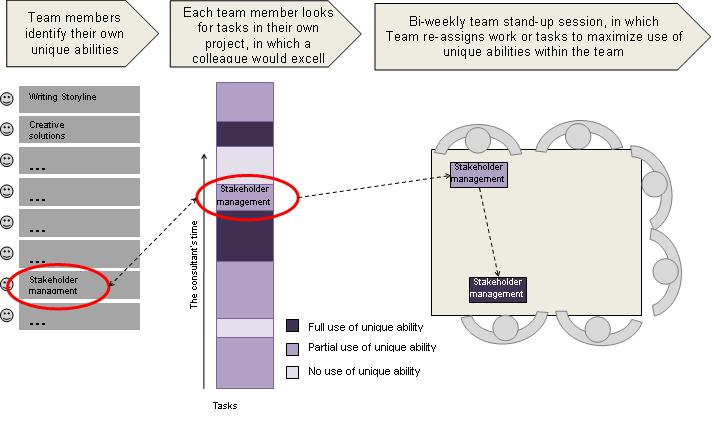 Super7 Operations, an innovative way of using Lean in back-offices, proves to be the next step after Lean Operational Management. Cooperation is a key ellement of Super7.
Super7 Operations, an innovative way of using Lean in back-offices, proves to be the next step after Lean Operational Management. Cooperation is a key ellement of Super7.
I have been always amazed by what is achieved when a production team, with operators and maintenance engineers working closely together, improves their own production line step-by-step. I’ve seen this many times, in my 15 years working as a Lean consultant. The first signs of improvement appear after the team gets training and starts applying the principles of Lean. The team finds the first quick wins, and immediately, this creates enthusiasm and momentum. The real transformation happens, however, when the team begins to truly cooperate. They become an improvement team, committed to improve performance, making optimal use of the strengths of each of the team members. When they really get going and continuous improvement starts, it’s just wonderful to witness.
I’ve been working as a Lean and Lean Six Sigma for a decade and a half now. Over the years, I’ve introduced the concept of improvement teams within a dozen production companies within The Netherlands, and a couple in Germany. In these multi-disciplinary teams, people from different departments work together on the single task of improving a production line, making it run faster and smoother, reducing down-time and break-downs, etc. As a team, they have the flexibility to cope with any production problem that can occur. For me, the people on the shop floor aren’t ‘resources’ that need to be ‘managed’, but creative and knowledgeable individuals, that can do great things, especially when they truly work together. Recently, I implemented these ideas in a financial service back-office in what I and others feel is an innovative way– the Super7 operations principle.
My book on Super7 Operations, with information on what Super7 Operations is, how it works and how you could apply it in your own work environment, is expected to be published within a couple of months. I’ll keep you posted – on www.super7ops.com!



